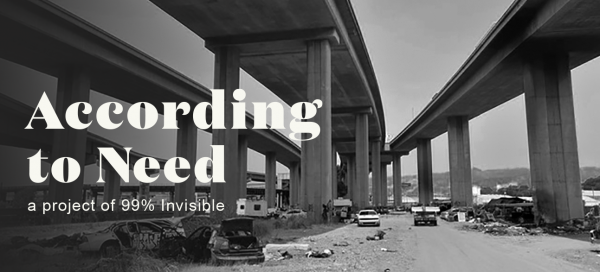In the 1980s, a psychologist named Sam Tsemberis was working with mentally ill homeless people on the streets of New York. Sometimes, when he thought it was necessary to keep someone safe, Sam would have people committed to a psychiatric hospital. But a few months later, he’d notice that person was back on the streets. Sam knew he needed to try something different. What he did changed everything about the way we think about solving homelessness.
In this episode, what happens when you ask people what they need.

“Sam increasingly believed that there were very few people who weren’t ready for housing. That included people yelling on the corner, people who smell so bad on the train that everyone moves away. And yeah, the guy I see every day by the newsstand on my way to work.”
The way homelessness has exploded in California over the last decade, you’d think there was no system in place to address it. But there is one – it just wasn’t designed to help everyone. According to Need is a documentary podcast in 5 chapters from 99% Invisible that asks: what are we doing to get people into housing?



Comments (2)
Share
I’d love to get sources to the studies mentioned
Victoria BC (Canada) is currently working through this issue. The province bought rundown hotels and gave the rooms to homeless camping in city parks under a housing-first philosophy. They find that the interplay between drug addiction, mental illness and housing-first stability is complex. For example, mental health problems cause some residents to start fires, threatening all the residents housing security. Clearly the homelessness problem cannot be addressed in a linearly sequential manner. The community has to be ready to offer support services in parallel or the whole initiative is continually at risk of failure.